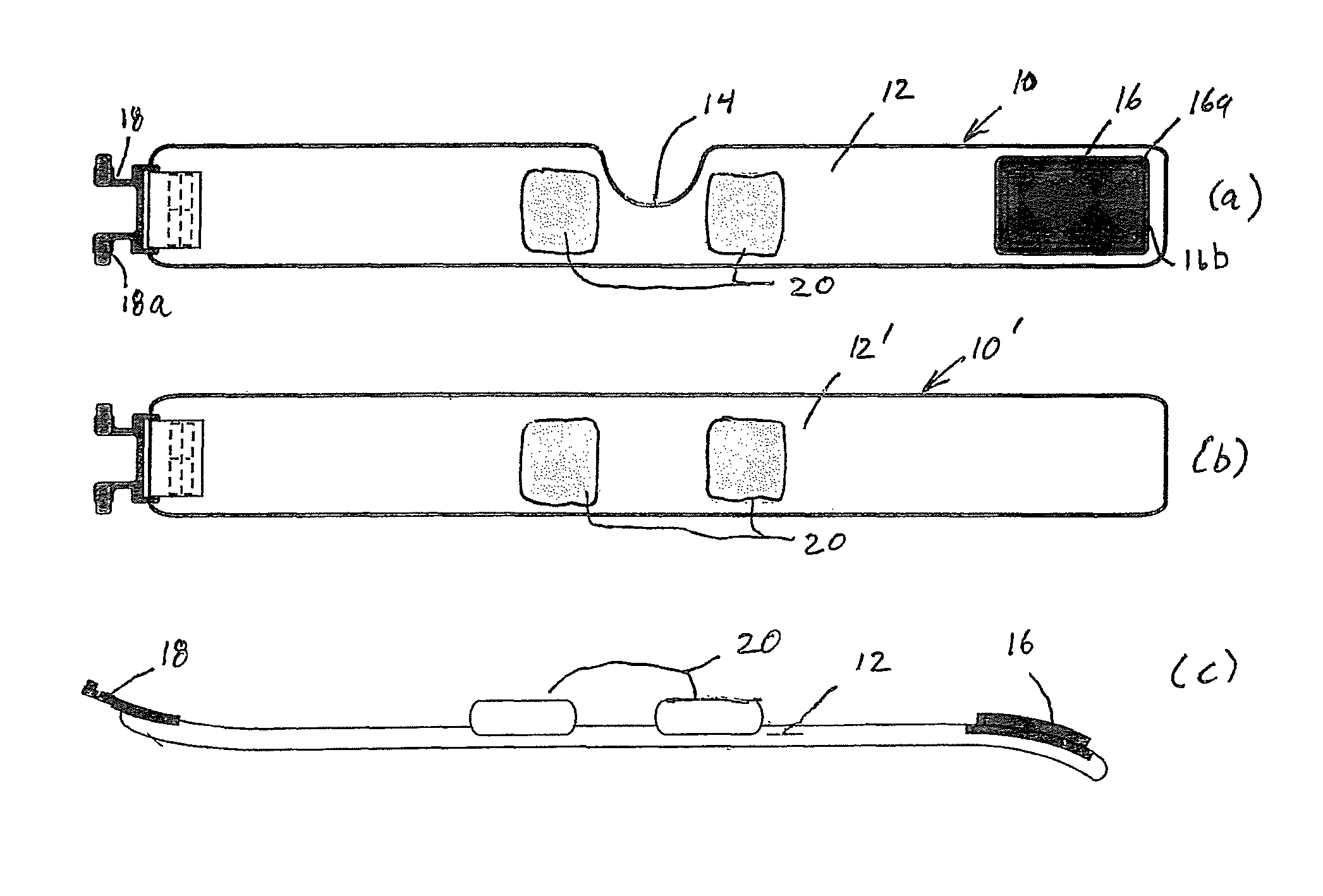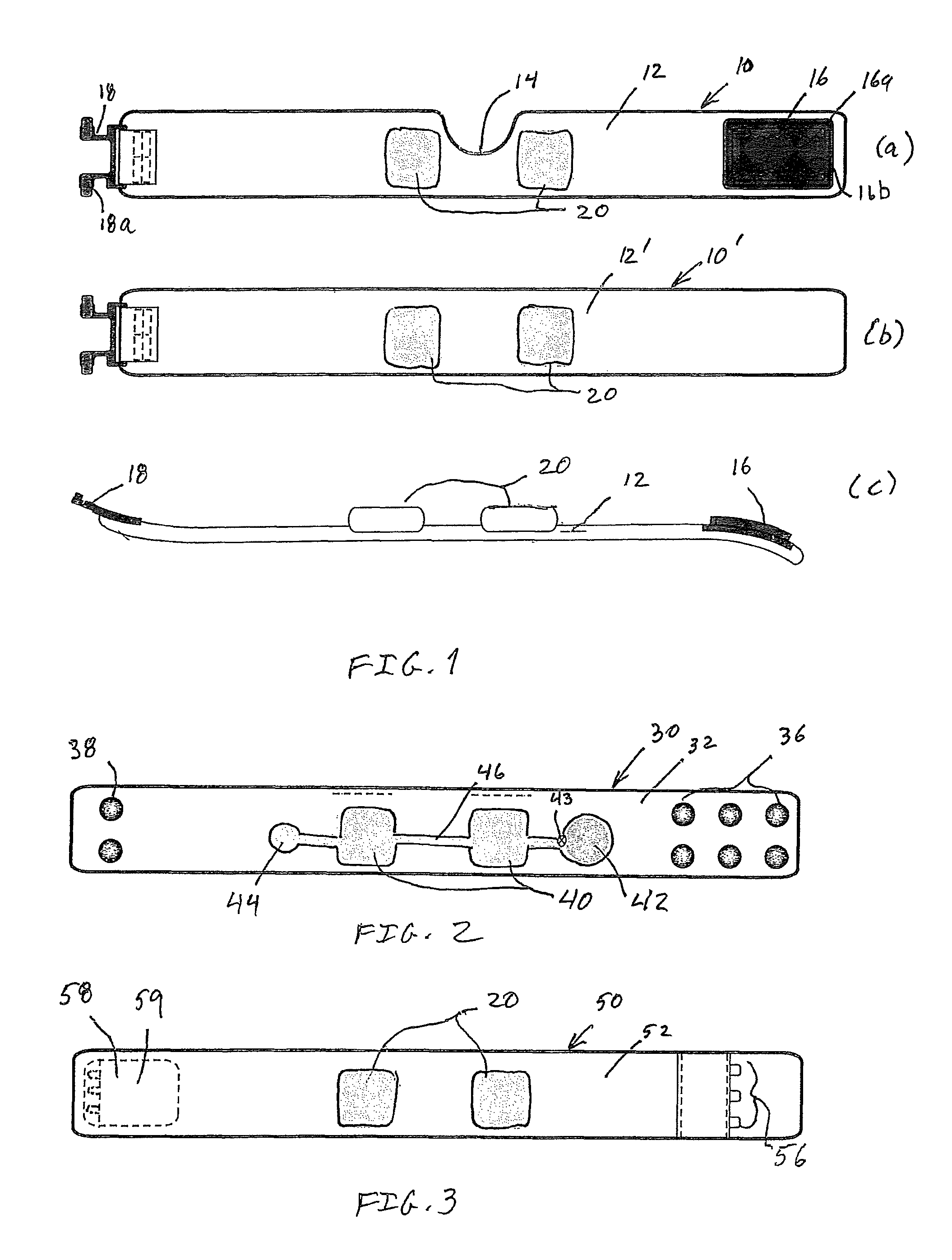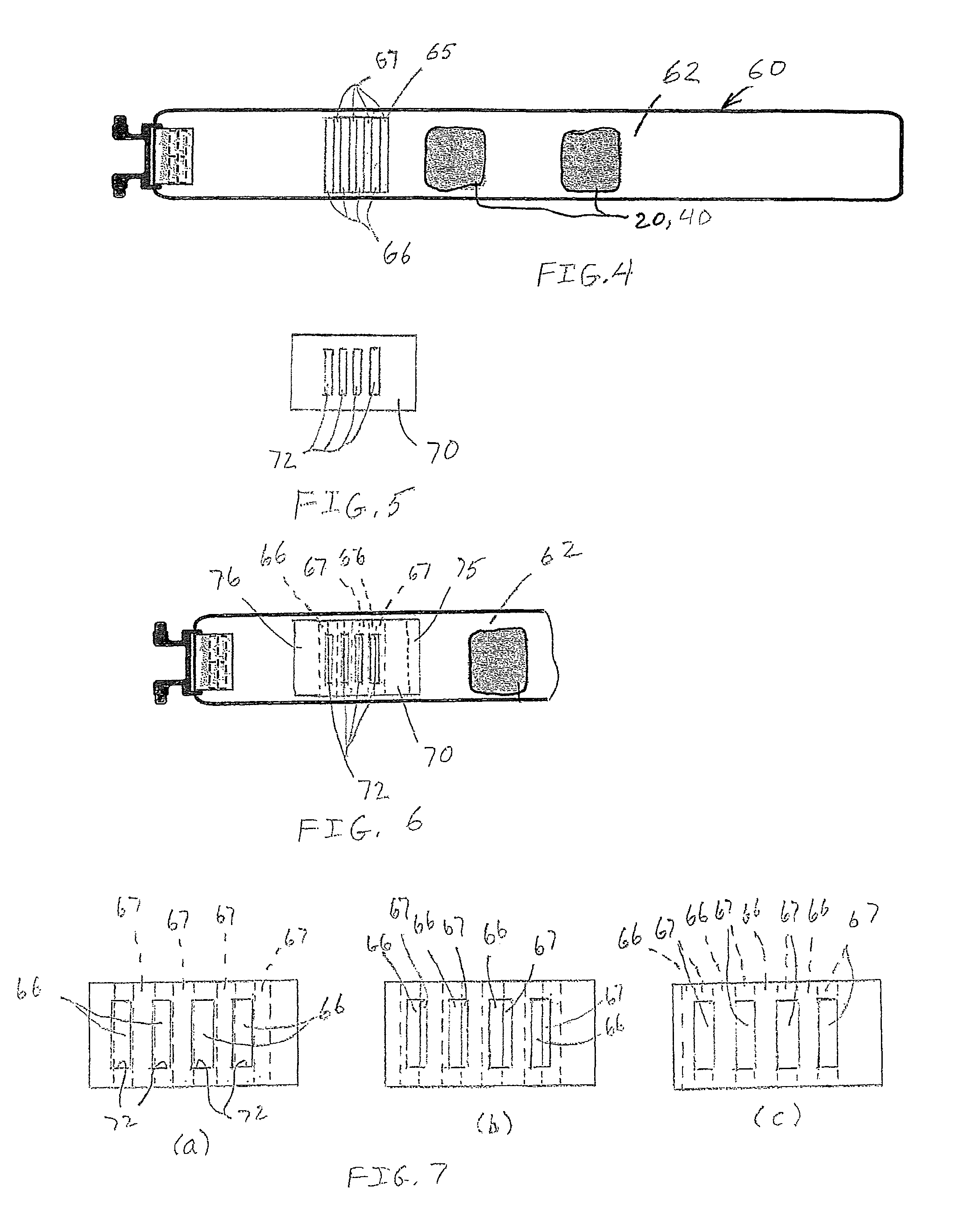Methods and devices to reduce the likelihood of injury from concussive or blast forces
a technology applied in the field of concussion and blast force exposure reduction methods and devices, can solve the problems of limited ability to increase the intercranial volume, reduce the differential acceleration between the skull and its contents, etc., to reduce the intracranial compliance, prevent concussions or damage to the structures within the cranium, and increase cerebral blood volume
- Summary
- Abstract
- Description
- Claims
- Application Information
AI Technical Summary
Benefits of technology
Problems solved by technology
Method used
Image
Examples
example 1
[0165]Materials and Methods: Two groups of ten (total of 20) male Sprague-Dawley rats weighing between 350 and 400 grams were used. Animals were housed under 12 hour light / 12 hour dark conditions with rat chow and water available ad libitum.
[0166]Marmarou Impact Acceleration Injury Model in Rats: Anesthesia was induced and maintained with isoflurane using a modified medical anesthesia machine. Body temperature was controlled during the approximately 10 min. procedures using a homeothermic heating blanket with rectal probe, and adequate sedation was confirmed by evaluation of response to heel tendon pinch. The animals were shaved and prepared in sterile fashion for surgery, followed by subcutaneous injection of 1% lidocaine local anesthetic into the planned incision site. A 3 cm midline incision in the scalp was made and periosteal membranes separated, exposing bregma and lambda. A metal disk 10 mm in diameter and 3 mm thick was attached to the skull with cyanoacrylate and centered b...
example 2
[0168]Experimental Protocol: This work involved two groups, each consisting of 10 animals for a total of 20 animals. Two groups were utilized, a control injury group and an experimental injury group. In the experimental injury group the rats were fitted with a 15 mm wide collar, with two compressive beads designed to overlay the IJVs and was tightened sufficiently to provide mild compression of the veins without compromising the airway. The collar was then fixed in circumference with a Velcro fastener. The collar was left in position for three minutes prior to administrating experimental brain injury.
[0169]Assessment of Intracranial Reserve Volume Intracranial Pressure (ICP) Measurement: ICP was measured in five animals using the FOP-MIV pressure sensor (FISO Technologies, Quebec, Canada) as described by Chavko, et al. The head of the rat was shaved and prepped in sterile fashion for surgery. The rat was fixed in a stereotaxic apparatus (model962; Dual Ultra Precise Small Animal Ste...
example 3
[0175]Volume Intracranial Pressure (ICP) Measurement: ICP was assessed both prior to and after application of the IJV compression device. The baseline ICP was 10.23±1.68 mm Hg and was increased to 16.63±2.00 mm Hg following IJV compression (FIG. 8: p<0.01). Notably, this increase of greater than 30% from baseline occurred within seconds following IJV compression. Intraocular Pressure (TOP) Measurement: IOP measurements were taken both before and after application of the IJV compression device, similar to ICP recordings. The baseline IOP was 11.18±2.27 mm Hg and was elevated to 16.27±3.20 mm Hg following IJV compression (FIG. 9: p<0.01).
[0176]The increase of 31% seen in IOP following IJV compression is strikingly similar to that seen in ICP following IJV compression, both in magnitude and rapidity of response (FIG. 10).
[0177]TBI—Impact Acceleration Model: None of the animals died from the head trauma. Animals tolerated collar application without any observed untoward effects for the ...
PUM
 Login to View More
Login to View More Abstract
Description
Claims
Application Information
 Login to View More
Login to View More - R&D
- Intellectual Property
- Life Sciences
- Materials
- Tech Scout
- Unparalleled Data Quality
- Higher Quality Content
- 60% Fewer Hallucinations
Browse by: Latest US Patents, China's latest patents, Technical Efficacy Thesaurus, Application Domain, Technology Topic, Popular Technical Reports.
© 2025 PatSnap. All rights reserved.Legal|Privacy policy|Modern Slavery Act Transparency Statement|Sitemap|About US| Contact US: help@patsnap.com



